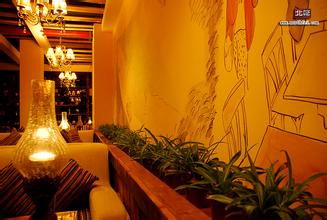A brief introduction to the description of the flavor, taste and aroma characteristics of Yega Sheffiwauka boutique coffee beans.

The classification system of Yega Shefi is not based on the size of the seeds, but on the proportion of the number of defective beans in the total number of beans. Usually visible are washed G2 and sun G3 yejia snow field, G1 is the highest grade, its own defect rate is the lowest, the best quality yejia snow field after manual selection, can be rated Grade 1.
The shop once had a Cork Manor sun-dried G1 snow, everyone loved it very much, after selling out, we searched for a long time, there has been no suitable manor level G1 snow storage, temporarily use a washed G2 snow. Recently, the foreign professional coffee tasting website Coffee Review recommended 3 grade G1 sherry, micro-batch to the store, here a little introduction to these three sherry.
Yejia Shefei exudes an extremely complex aroma, showing an extremely outstanding taste, which is difficult to describe. In general, Yerga Shefi's dry aroma exudes intense fruit aromas, with thick dry fruit aromas, strawberry, mango, apricot paste aromas. The moist aroma is like sweet syrup, like sticky apricot juice, wrapped in pristine honey or chocolate. The taste is not strong, the mellow is medium, the sour taste is not obvious, but lively and bright, like fruit black tea in general.
Yega Shefi, nearly two kilometers above sea level, is one of the highest coffee-producing areas in the world. Yirga means "settle down", Cheffe means "wetland", and Lake Turkana, Lake Abaya and Lake Chamo bring abundant water vapor here. In the rift valley represented by Misty Valley, fog permeates all year round, spring is like all the year round, the breeze is gentle, cool and humid, thousands of coffee trees thrive and multiply, giving birth to the unique fragrance of flowers and fruits of Yejia Xuefei, which is ambiguous and unpredictable.
European monasteries pioneered local coffee farming, which was later run by coffee communities or cooperatives in the villages surrounding the town. There are no special plantations here, coffee trees are naturally scattered in forests and fields. During harvest season, Ethiopian coffee trading companies would come to town to buy coffee beans collected by farmers and eventually auction them for export under the brand name "Yegashefi."
Yirgacheffe Aricha Grade 1 raw beans yellow green color, is a typical sun coffee color, particles are uniform and full, less defective beans, using ordinary sacks packaging export, sacks printed with basic information of stained coffee (processing plant, exporter, ICO code, processing method, production area) sacks are agricultural packaging plastic bags, this coffee using light slow roasting method can best reflect its characteristics.
Yirgacheffe Aricha Grade 1 Cups There are many high-quality coffee processing plants in the Yirgacheffe region. Many caffeine comes from these processing plants and becomes a hundred times more valuable. The solarization fee produced by Kebel Aricha Mill is one of them. This coffee is also known as ARICHA beans. It is processed by Kebel Aricha processing plant through fine solarization and is classified as Gr.1 or G1 by ECX. Yegashefi is a region in Ethiopia's Sidamo province that is famous for its unique coffee flavor, and the name Yegashefi is even greater than the name of Sidamo in its province. Recently, the domestic Ye Jia Xue Fei can be said to be overwhelming, more and more coffee lovers are also familiar with all kinds of Ye Jia Xue Fei
Sunny Yesha G3, bold and wild fruity, syrupy sweetness, very high body, in addition to its own citrus and lemon aromas, blueberry and strawberry berries are amazing
In the north of the Great Rift Valley, a series of lakes dot the Horn of Africa like pearls. Lake Turkana extends from Kenya to Ethiopia. It is not only the cradle of mankind, but also the cradle of coffee.
Yega Shefi, nearly two kilometers above sea level, is one of the highest coffee-producing areas in the world. Yirga means "settle down", Cheffe means "wetland", and Lake Turkana, Lake Abaya and Lake Chamo bring abundant water vapor here. In the rift valley represented by Misty Valley, fog permeates all year round, spring is like all the year round, the breeze is gentle, cool and humid, thousands of coffee trees thrive and multiply, giving birth to the unique fragrance of flowers and fruits of Yejia Xuefei, which is ambiguous and unpredictable. As a yejia snow field control, the bean list must not be without Beloya Bialoa production area yejia snow field, this year's Ecx batch of sun-dried snow field G3 grade (G3 is the highest grade of sun-dried raw beans in Ethiopia grading system, G1, G2 grade is divided into washed raw beans), has been amazing, unexpectedly, there is also a abnormal Beloya Kochere cooperative sun-dried yejia snow field G1 grade. Then take a look at the Sunny Ye Jia Xuefei G1 VS Sunny Ye Jia Xuefei G3 evaluation bar!
Coffee beans are a kind of plant fruit, but also a crop. The existence of Ye Jia Xue Fei better explained the attribute of coffee as a fruit. The third wave of specialty coffee has always wanted to interpret the regional flavor of coffee. As for this problem, look at the counterculture coffee flavor wheel. Nearly half of them have flavor descriptions about fruits. There are also many characteristics that people can think of as fruits at a glance, and the following will not be repeated. And yeja's flavor can be compared to each other, and as for why, although some people like to use a graph to explain how the sourness decreases and the bitterness increases over time, the taste of coffee and the beans themselves are wonderful things. It's not that the sour taste burns out and the rest is bitter, nor is it that the sour aroma substances are fixed. What the chart doesn't tell us is that these lost aromas can still be converted into other substances. The complexity of what we feel in our mouths isn't just a few lines drawn on a picture.
Important Notice :
前街咖啡 FrontStreet Coffee has moved to new addredd:
FrontStreet Coffee Address: 315,Donghua East Road,GuangZhou
Tel:020 38364473
- Prev

A brief introduction to the treatment method of grinding degree and baking degree of fragrant iron card fine coffee beans
The two classic high-quality coffee varieties, Typica and Bourbon, are the main cultivated varieties in Yunnan, and the Catimor series were introduced from Kenya in 1991 (stronger anti-virus ability and higher yield). A variety of Arabian species (also known as small seed species). Because the morphology and habits of the two varieties are similar, the two varieties are mostly mixed. Cloud
- Next

A brief introduction to the origin, development, history and culture of Yega Sheffivoka boutique coffee beans with rich sour taste.
Coffee bean is not only a kind of plant fruit, but also a kind of crop. The existence of Yejia Xuefei better explains the attribute that coffee is a fruit. The third wave of specialty coffee has been trying to interpret the regional flavor of coffee, as for this question, if you look at the counter-cultural coffee flavor wheel, nearly half of them have a description of the flavor of fruit. There are many others that people can think of at a glance.
Related
- Detailed explanation of Jadeite planting Land in Panamanian Jadeite Manor introduction to the grading system of Jadeite competitive bidding, Red bid, Green bid and Rose Summer
- Story of Coffee planting in Brenka region of Costa Rica Stonehenge Manor anaerobic heavy honey treatment of flavor mouth
- What's on the barrel of Blue Mountain Coffee beans?
- Can American coffee also pull flowers? How to use hot American style to pull out a good-looking pattern?
- Can you make a cold extract with coffee beans? What is the right proportion for cold-extracted coffee formula?
- Indonesian PWN Gold Mandrine Coffee Origin Features Flavor How to Chong? Mandolin coffee is American.
- A brief introduction to the flavor characteristics of Brazilian yellow bourbon coffee beans
- What is the effect of different water quality on the flavor of cold-extracted coffee? What kind of water is best for brewing coffee?
- Why do you think of Rose Summer whenever you mention Panamanian coffee?
- Introduction to the characteristics of authentic blue mountain coffee bean producing areas? What is the CIB Coffee Authority in Jamaica?

